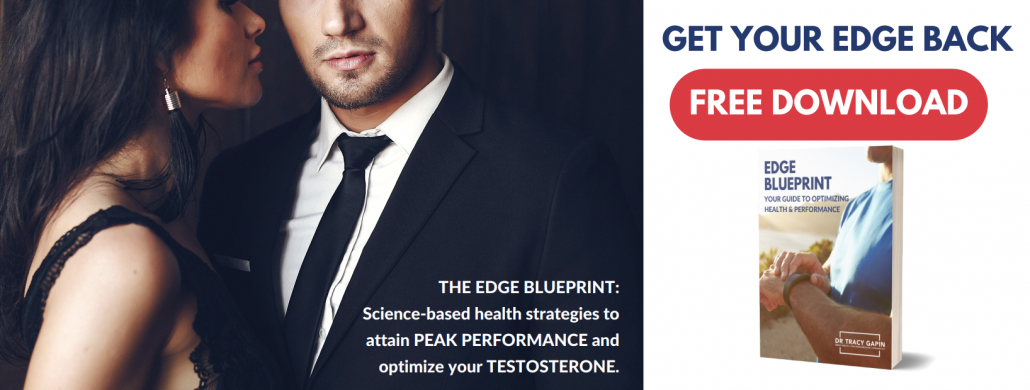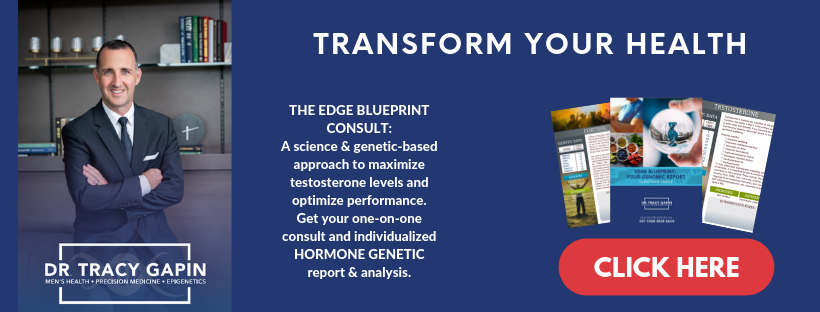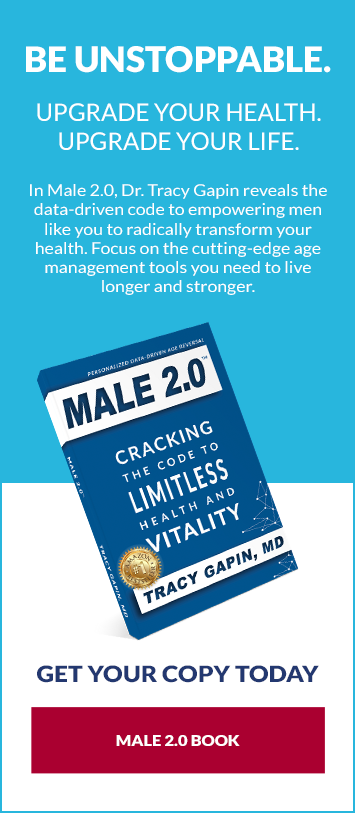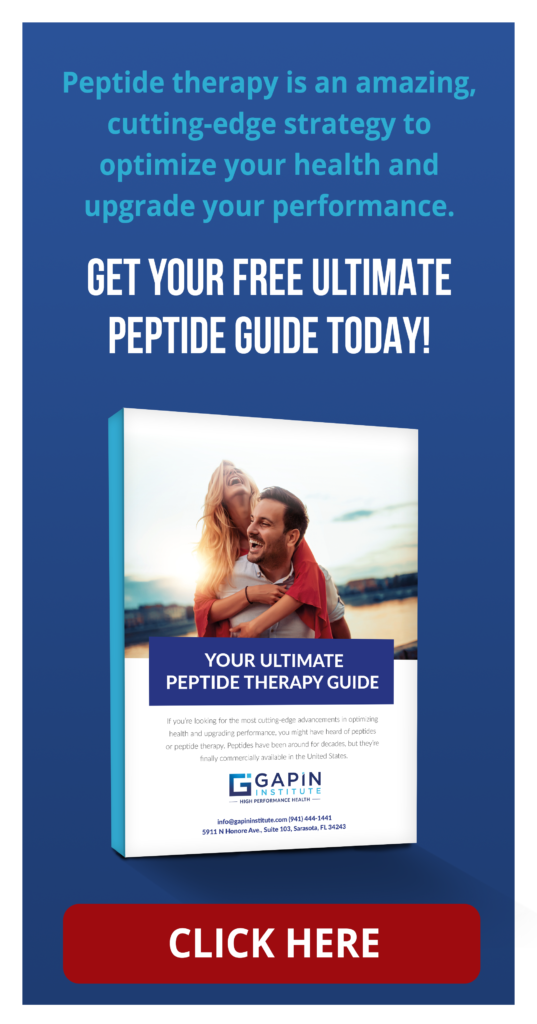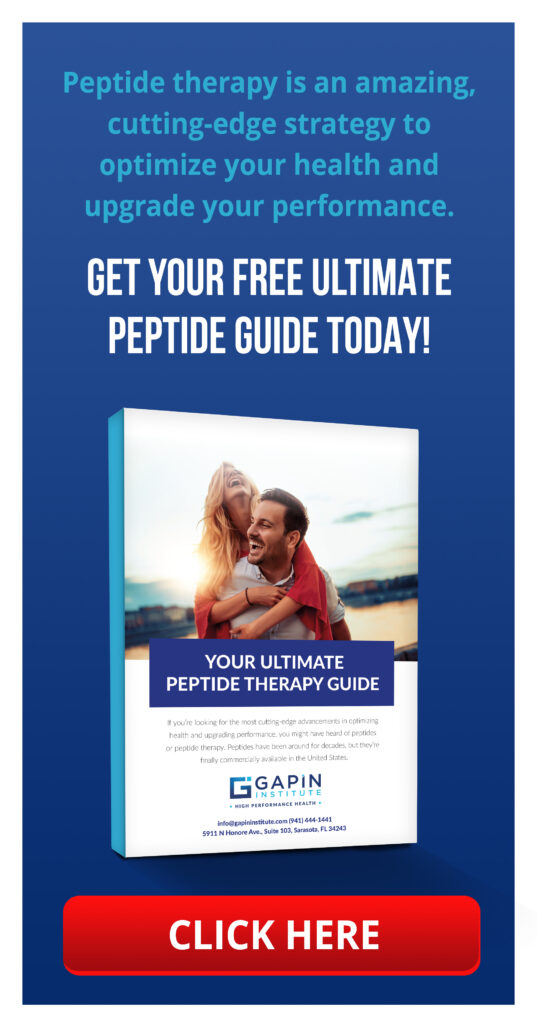
Biohacking is an incredible way for intelligent men to take their health and lives to the next level. You can essentially learn and “hack” your own body to be more productive, energetic, and vital.
But there’s a lot of material about biohacking out there… and not a lot of clarity.
So how do you know which hacks will and won’t work for your body? Which biohacks are actually going to affect your biology?
In this article, I’m going to give you some pointers to start navigating the vast and overwhelming world of biohacking, so you can become an expert safely, swiftly, and successfully.
So let’s start hacking!
What is biohacking?
Biohacking is, in essence, hacking your biology. It’s a form of self-improvement outside the conventional box of medicine.
Our bodies are affected by everything around us: food, environment, genetics, movement, and even our belief systems. You’ll even have a different biological response based on smells, sounds, and feelings around you. Your brain responds differently to jazz than to techno than to oldies rock. Your body is more energetic in certain lights than in others.
But not everyone is affected the same way by the same factors. Our bodies are complicated and unique.

Biohacking has shown the medical world something invaluable. Humans are more than their genetic blueprint. We’re even more than our food. We are the sum of the entire world around us.
Even more importantly, biohacking tells us that we have control over our health, wellbeing, and life. You can change the variables to impact how your body reacts in certain situations.
So how can you get started with biohacking?
Biohacking isn’t consistent
This is where we lose a lot of men who aren’t committed enough to keep going. Because there aren’t any right or wrong answers when it comes to biohacking. It’s not black and white. It’s a lot of trial and error, which can feel exhausting at first.
Everyone has a different body composition, which means everyone will have different biohacking needs and reactions. As a basic example, you might need 1,800 calories in a day to maintain your weight, but your buddy might need 2,400 calories to maintain the same weight. Or you have a deficiency in vitamin D, while your buddy gets a lot of sun but is deficient in vitamin B12.
Everyone’s needs are uniquely theirs, which means their biohacking plan has to be personalized as well.
Moreover, everything we do works together—or works against each other. The food you eat impacts your supplements and medications, which affects your fasting days, which impacts your workouts. There are endless variables, which can make it even harder to keep track of it all.
That’s why you have to keep track of it all. You want to do your research to see which biohacks might work for you, and then you want to keep a record to see if they actually are or aren’t working effectively for you.
In the rest of this article, I’ll teach you how to research and discover biohacks and then how to maintain records to determine their efficacy for you.
(I’ve repeated the phrase “for you” a lot because I want to emphasize that biohacking is an entirely personal process, designed and crafted FOR YOU.)
Researching biohacks
Determine what you want to improve.
You don’t want to just start throwing around biohacks and hoping one sticks. Think about which area(s) of your health you want to change. Create a list, and pick the one or two that are most important to you for the time being. For example, you might want to boost your productivity. When you boil “productivity” down, you really want more focus and attention so you can be more productive during the day. Now you have your starting point for your research!
Read studies.
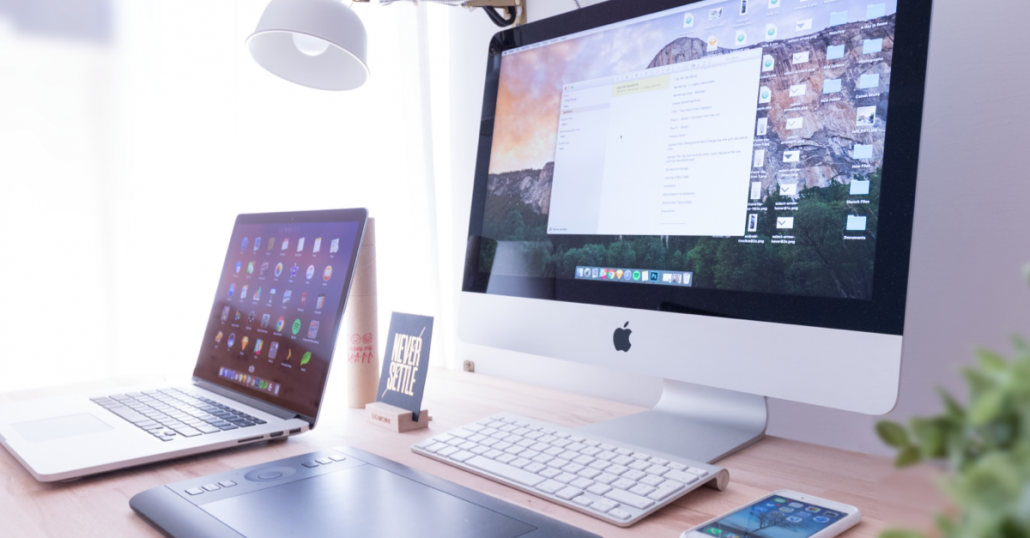
Real research is the best research. You want to pull the majority of your info from legitimate studies and experts, like PubMed or ScienceDirect.
Still, keep in mind that experts aren’t perfect and no study is fool proof. Everyone’s biology is different, which means your reaction could be completely different than those in the study.
Research is constantly changing as well. Different methods and processes can come out with different results that may or may not have an impact on you specifically.
Plus, studies are made to isolate variables. So if they’re looking at the effects of vitamin C, they’ll remove all other supplements and variables so they can see just what the impacts of vitamin C are alone. That means if you take vitamin C and vitamins D and B12, you might see a different effect than isolated vitamin C.
Studies are a great way to determine the safety of a biohack and how it might impact your body, but even the strongest research won’t give you the full story. Your body is a system of interdependent networks, and nothing works in isolation—so studies in isolation also aren’t the end-all-be-all. You’ll need to try it for yourself and keep a log of your results to truly understand the impact (which I’ll dive into more below).
No amount of research will give you complete certainty.
Look at online communities.
There are thousands of online health forums—some better than others. Forums, communities, and Facebook groups like Smart Men’s Health, are a great place to get ideas and see how people like you are implementing biohacks in their daily lives. This is a cool way to learn more about your interests and get an “inside scoop” in the biohacking world.
As always, though, use your judgment. Everyone has the right to their opinion—but you don’t need to listen to all of them. Take in opinions and ideas, and then formulate your own.
Take notes.
The more notes you have, the better. As you’re researching, it can and will get overwhelming at times. There are going to be hundreds of experts contradicting one another. Everyone has an opinion, and those opinions may or may not be legitimate.
You could spend hours getting lost in the research. But note taking can help narrow your search and focus on those areas that matter most to you. Plus, you’ll have notes you can draw on moving forward if you choose to try out the biohack. This can be really useful when you’re looking at the effects of the biohack.
Most importantly: take note of safety. Don’t try a biohack if there are any cautions or dangers that are known and present.
What do you care about?
When doing your research, you especially want to take note of the following information, especially with regards to supplements.
Method: What are the best ways to utilize this supplement or hack? For example, supplementing with folate is healthy. But most formulas use folic acid, which doesn’t replace bioavailable folate. In fact, folic acid may cause methylation, which can impact your epigenetic expression. Another example might be B12 vitamins versus B12 shots, which can have completely different reactions based on the rest of your regimen. While researching, you want to research how different forms of utilization impact safety and efficacy.
Ingredients: Every single ingredient on the label matters. No supplement is completely isolated without inactive ingredients. So you want to take different ingredients and variables into account, especially with regards to your supplements. Keep in mind that there are no standards for supplements, so manufacturers may not even list all of the ingredients (especially if they’re toxic or unhealthy). I recommend looking up the labels online to get a fuller depiction of what’s actually inside the bottle.
Brand: I’ll repeat- there are no federal controls on supplements like there are with prescription drugs. All quality assurance and testing is performed by the company or a third party hired by the company. That means brand reputation is one of the most important aspects to determining the efficacy of the bottle. Look at reviews and discussions about the brand to ensure it’s legitimate and safe.
By the way, expensive doesn’t always mean better. A higher cost should be associated with higher quality ingredients—but make sure the reputation and reviews reflect that!
Dose: How much you’re actually getting has a huge impact. Sometimes, one dosing of a product can offer healing benefits, but just a few more milligrams and it can be lethal. For example, aspirin is a great way to manage pain, but you can do serious (if not deadly) damage if you take too much. Supplementing with 5mg of zinc may be healthy, but 50mg can actually be dangerous. It’s not even that dosing is always fatal, either, but it may have more side effects. Red light therapy on a weekly basis may have positive anti-aging impacts, but multiple times per week can lead to dryness and dehydration.
Still, some doses can actually be lethal. Be aware of the LD50, which is the Lethal Dose 50%. This refers to the dose that would kill half of the test subjects. You want to make sure you’re aware of maximum dosage levels and lethal levels.
Don’t get scared off here. Even water can kill you in large quantities. The goal is to be aware of effective dosing and reduce your risk of taking too much. When in doubt, start with the lowest possible dose and work your way up.
Use it as a trial.
You’re never going to be completely confident with a biohack, no matter how much you research it. You simply need to use your common sense and try it out!
Remember that nothing is set in stone. The whole purpose of biohacking is trial and error to find what will best work for you.
I’ll repeat: don’t get risky here. Don’t try out dangerous or potentially lethal biohacks. That’s not worth the potential “error.” You’ve got one body. Keep it simple.
Start with low-risk hacks.
Get into the swing of things with low-risk hacks that are well researched and easy to implement. Some common places to start with biohacking:
- Watch the labels on your food, especially your produce. Switch to organic fruits and veggies. Go for grass-fed beef and pastured eggs.
- Incorporate more grass-fed butter, like Kerrygold, in your diet. Ghee butter is another great alternative.
- Reduce your sugar intake. (You’ll actually have more energy when you have less sugar.)
- Use a foam roller to ease aching and sore muscles.
- Drink structured, alkaline water.
- Go outside more to breathe fresh air and get sunlight.
- Take a cold shower.
- Meditate and be grateful. It actually changes your brain chemistry!
- Listen to brainwave frequencies. Beta frequencies make you more awake and alert; alpha puts you into a meditative state; theta accesses your subconscious mind; and delta puts you into a deep sleep.

Wait, those are biohacks? Eating butter is a biohack? Yup! It doesn’t have to be scary or hard. It’s about understanding how to fuel your body in a way that works for you.
But, putting butter in coffee might work for you, but it doesn’t work for your lactose intolerant friend. That’s where understanding your body and keeping a record comes in.
Biohack recordkeeping
So you’ve done all the research. You may be feeling a little bogged down, and you’re not really sure which way is up.
How do you know what actually works?
Unfortunately, you don’t know if it’s going to work… until you try it.
And even after you try it, you won’t know for sure unless you do some serious analysis with how your body reacts to it, especially in relation to all of the other variables going on in your life.
It’s time to make yourself a science experiment—and have fun doing it! You’re about to embark on a journey that can completely hack your mind, body, and wellness to take your life to the next level. Every “experiment” or trial you run is ushering you to the next step… so take notes, be thorough, and stay pumped!
It’s time for you to keep a daily log of everything going into your body and going on around you. You want to understand exactly how your body is responding to the smallest moments and changes, so you can amplify ones that work and negate those that don’t.
But how do you keep a biohacking log?
Choose your variables.
What are you actually going to try out? You want to list all of your variables, including constants and ones you change, so you can understand how the different factors are interacting.
Some common variables you’ll want to track:
- Food/nutrition (especially macros and micros ratio)
- Sleep quality and quantity
- Intermittent fasting
- Movement (exercise, daily activity)
- Supplements (brand, dosing, etc.)
- Light exposure and spectrum (quality)
- Air quality
- Stressors
- Water intake and quality
- Organic vs non-organic
- Mold and chemical exposure
- Toxin intake
- Illness
- External events (happy, sad, or other)

The time you do everything is also important. For example, when are you eating? Eating carbs first thing in the morning might leave you tired, but a carb mid-day snack might be helpful for you to finish off the workday. Or, when are you going to sleep? This could impact your circadian rhythm and sleep quality.
The more variables you log—no matter how small—the easier it will be to track the outcomes.
Create your results.
What happens when you change certain variables? How do you feel?
I recommend that you come up with a list of decently quantifiable results, so you can easily measure and analyze your progress. Some results could include:
- Energy
- Focus
- Awareness
- Mood
- Productivity
- “Flow” or creativity
- Clear headedness
- Bloated (physical heaviness)
- Muscle stiffness and soreness (inflammation)
- Stress resiliency
- Emotional acuity
- Endurance
- Performance
- Recovery time
- State of mind
- Body temperature

Then, you might rate each of these on a 1 to 5 scale. This can help you compare results on a daily and long-term basis.
Ask reflective questions.
Your log doesn’t have to just be about data. Make it a living document. Include speculations, uncertainties, thoughts, and ideas. These might come in handy in the future.
For example, you could add a note: “Took my vitamin C at 9am instead of 8am and felt stronger. Maybe I need to take it with breakfast?” This essentially creates a theory for yourself that you can test at a later date.
The more you include your thoughts and feelings, the easier it will be to evaluate results.
Keep it simple—or complex.
Make your log as simple as you want… or as complex as you want. The goal is simply to make the log easy enough for you to use that you will actually utilize it on a regular basis.
I recommend using Evernote. You can sync the mobile app with your desktop, so you can take notes anywhere and everywhere. It’s free and easy to use, so you’ll be eager to keep up with it.
Make sure you use a secure tracking application. You’re essentially logging your own health, so you don’t want any information getting leaked. Be careful and aware of what you’re putting out there.
Tip: If you use Evernote or another centralized tracking app, create your own hashtags so the documents are easily searchable. For example, #dropped could signify that you stopped using a certain supplement. If you want to find the day you stopped taking zinc, you search #dropped and #zinc to find it!
Tip 2: Save every document. The goal is to track your changes, so you don’t want to delete old information that could be important in your scientific quest.
Make changes one at a time.
Don’t throw yourself into a bunch of biohacks at once and hope they all stick. Like any good science experiment (which you’ve now become), you want to test one variable at a time.
Everything—and I mean everything—interacts with one another. Your supplements could interfere with other supplements and medications. Or you go to an infrared sauna to detox but you take a supplement that is preventing your detox. Or you listen to music that stresses you out more and doesn’t let your body relax in the sauna. Too many variables can make understanding your biohacks a challenge.
Be sure to look at patterns and correlations. When you change a variable, there might be an unexpected reaction. That doesn’t necessarily mean that specific variable or supplement is bad—it just might be reacting with something else you’re taking. So it’s important to test out different thoughts and theories before casting off a biohack altogether.
Why use a log?
For some guys, a log seems like overkill. “I can think about stuff and know how I’m feeling, so why does it matter?” But it does matter. The little nuances of your health can make a big difference. And if you’re entering the biohacking world, you’ll quickly start to realize that a thousand different variables can impact your wellbeing. Keeping track of them will help you understand what works, what hurts, and where different interactions are coming into play.
It also helps train your brain to notice different aspects of your health. You learn how to assess yourself on a deeper level to see how the world and your lifestyle impact you. This can show massive results in the long run by putting you into a health-first mindset. The more attuned you are to your body, the easier it will be to improve your health and implement healthy biohacks.
All the research in the world can’t compare to your own feelings and intuition. If you listen to what your body is telling you, you’ll be able to understand how to hack your own bio in the most effective way.
Your framework
You’re doing the research and you’re keeping a log. In the meantime, you also want a separate log specifically for everything you’re currently using to biohack, especially medications and supplements. We refer to this as your “framework.” It’s essentially a list of all of the biohacks that are supporting your body—aka the structure or framework of your “building”. (Your body is a temple.)
Your framework sheet is basically just a reference so you can see exactly what you’re taking at any time. This can help you make effective comparisons and change variables, but it’s also useful when you’re talking to a medical expert or genetics coach. You hand them your framework sheet and it’s essentially a master list of everything you’re taking. This allows the medical professional to ensure safety and optimal health.
What should you include on your framework?
- Supplements, prescriptions, drugs, vitamins, herbs
- Dose (how much of each; make sure to confirm units)
- Form (how are you taking each, like a pill or an injection)
- Frequency (how often do you take it)
- Brand
- Exercise and nutrition routines
Essentially, you can include any variables (even light therapy, saunas, or air quality) on your framework to give your doc the full picture.
Note: If you take a formula supplement or multivitamin, make sure you itemize everything within it on your master sheet as well.
Whenever you add or remove something, save your framework sheet as a separate version. This will give you a history of frameworks, so you can compare how you were feeling with each set of variables.
Conclusion
P.S. Remember that some substances are actually dangerous. If there’s a biohack you’re not sure about, talk to a professional before trying it out.
Biohacking requires a lot of research, critical thinking, and testing. But it’s worth it. When you find a hack that works for you—whether it makes you more focused or energized or happier—then you’ll see what this biohacking craze is all about.
Your body is constantly changing, so biohacking never stops. If you get into a groove of research and log keeping, though, you’ll quickly start to learn more about your body and how it handles the world around it.
This self-awareness can (and will) ultimately lead you to a significantly enhanced life, health, and wellness.
Are YOU ready to start biohacking?
The best way to hack your body is to make changes at its very core and foundation… with your genes!
With my genetics coaching, I use testing and analysis to look at your genetic makeup and epigenetic expression to understand exactly how and why your body is working today. Together, we then create a personalized lifestyle plan, one variable at a time, to bring your body into its peak state.
Want to learn more? Download my FREE Edge Blueprint for Men eBook. You’ll learn how to hack your biology to maximize testosterone, optimize performance, and take your life to the next level!
Download the Blueprint
Schedule a Call
**************************
Want more tips to optimize your health and testosterone?
Listen to the latest podcasts. Click HERE
Tracy Gapin, MD, FACS – Board Certified Urologist in Sarasota, Men’s Health Optimization Expert and Medical Director of Sarasota Apeiron Center for Human Potential. Founder of www.SmartMensHealth.com

